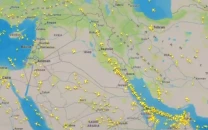Developing countries need debt relief
Pakistan faces a massive debt crisis, with its economy burdened by high debt servicing and political instability.

No matter which way you look at the numbers, they tell the same story: in the Global South – the name now given to the developing world – Pakistan is one of the most heavily indebted countries. Let me start by looking at some numbers for Pakistan. As of June 2023, Pakistan's total public debt and liabilities was estimated to be $224 billion which is close to 75% of the country's GDP. About $87.2 billion is the debt overhang of the government and $6 billion is owed by public sector enterprises such as Pakistan International Airlines, the PIA.
China stands out as a major lender to Pakistan. Most of what Pakistan owes to Beijing has come in as loans made under the CPEC lending programme. CPEC was originally planned as a programme based on grants from Beijing to Islamabad. However, over time, the expansion of the programme to include more than building roads, railways and energy pipelines to include energy projects meant borrowing often on onerous terms.
As has happened on a number of times in Pakistan's troubled economic history, Pakistan has gone to the IMF for help under the institutions lending programmes. These come with difficult conditions that include increasing the burden carries by citizens. For instance, the latest programme envisages increasing the GST to 18%. This undoubtedly will result in increasing the rate of inflation. However, recourse to funding by the IMF becomes necessary as given the already high payments burden the country carries, borrowing from the capital markets would be inadvisable. Some energy-rich Arab nations have provided grants to Pakistan when Islamabad was faced with the possibility of default on foreign obligations.
The World Bank published a report on December 3, 2024 highlighting the enormous debt carried by the developing world. According to the Bank's assessment, soaring inflation saddled the developing world with a record $1.4 trillion in debt servicing costs in 2023. As the central banks raised interest rates in the West to fight inflation, the South had to pay higher amounts as interest on the debt they carried. While principal balances held steady at around $951 billion, interest payments jumped by a third to $406 billion. This has left more countries facing fiscal crises as they struggled to avoid default. Pakistan was one of the most affected countries, burdened by debt it is finding very hard to service. .
Inderjit Gill, the World Bank Chief Economist, is one of the authors of the above-cited report. Speaking about the situation in the countries of the South, he said that facts about debt "imply a metastasizing solvency crisis that continues to be misdiagnosed as liquidity problem in many of the poorest countries. It is easy to kick the can down the road, to provide these countries with just enough financing to help them meet their immediate repayment obligations". The World Bank report wrote that developing countries were stuck because their debt burdens made it difficult to attract the investment needed to spur economic growth. Gill, the principal author of the report, argued that the highly-indebted economies deserved some of the same protections that companies and individuals approaching bankruptcy often received. "It's time to face reality," he said in an interview with a newspaper. "The poorest countries facing debt distress need debt relief if they are to have a shot at lasting prosperity."
More than a dozen sovereign nations defaulted on their debt in the last three years and more than 30 of the world's poorest countries have experienced "debt distress" according to the UN in the institution's report on the debt situation. In 2023, Belarus, Ghana, Lebanon, Sri Lanka and Zambia were all in default according to Fitch Ratings, a financial firm that watches the situation in the developing world.
Global financial institutions including the World Bank, the IMF and the regional development banks have been working with private institutions that have been lending to the developing world to help the indebted countries but the process has been slow and painstaking. China, the world's largest creditor, has been reluctant to alter the terms of its loans as it attempts to deal with its own economic and financial crises.
The departing Biden administration has been critical of China's lending practices. Janet L Yellen, the soon-to-depart Treasury Secretary, described China's handling of the debt problem as "opaque" in an interview in which she called for accelerating debt relief. She also suggested the launch of a programme aimed at helping nations find new sources of borrowing by creating aid packages for "high ambition countries" that want to invest in clean energy by using the sun, wind or ocean waves for generating electricity. "It's a substantial burden and can impede their investments in things that will promote sustainable dealing with pandemics or climate change," she said.
The IMF estimated that global public debt would exceed $100 trillion by the end of 2024 and the World Bank has warned that poverty-reduction efforts have reached a standstill because of weak growth in poor countries that were the hardest hit by the pandemic. The World Bank's description of the countries where outstanding debt has created serious problems applies well to Pakistan.
The World Bank, its sister regional development banks and the IMF have important roles to play in aiding the highly-indebted countries. However, it is not clear what would be the approach of the incoming Trump administration towards international financial institutions. The policy document 'Project 2025' which some of Trump's former White House aides drafted calls for the US to withdraw entirely from the World Bank and the IMF. Although Trump approved funding increases from the World Bank during his previous term in office, he could decide to revisit America's foreign aid priorities. His "America alone" approach to dealing with the world outside the country's borders suggests that once he returns to the White House, he is not likely to be supportive of international organisations. He has already indicated that he would not support WTO.
Pakistan's huge debt burden can be attributed to political instability. Frequent changes in leadership have resulted in the country not developing a viable approach to raising resources for servicing government programmes. The tax-to-GDP ratio is one of the lowest in the world, the result of the rich being able to avoid the tax man.














COMMENTS (1)
Comments are moderated and generally will be posted if they are on-topic and not abusive.
For more information, please see our Comments FAQ